Are you considering adoption in Florida but not sure where to start?
This article will guide you through the entire adoption process in the state, from choosing an adoption agency to finalizing the adoption. We will also discuss the requirements for adopting in Florida, the different types of adoption available, the costs involved, and the resources available for adoptive families.
We will explore the rights of birth parents in the adoption process and the crucial role of an adoption attorney. Stay tuned to learn everything you need to know about adoption in Florida.
Key Takeaways:
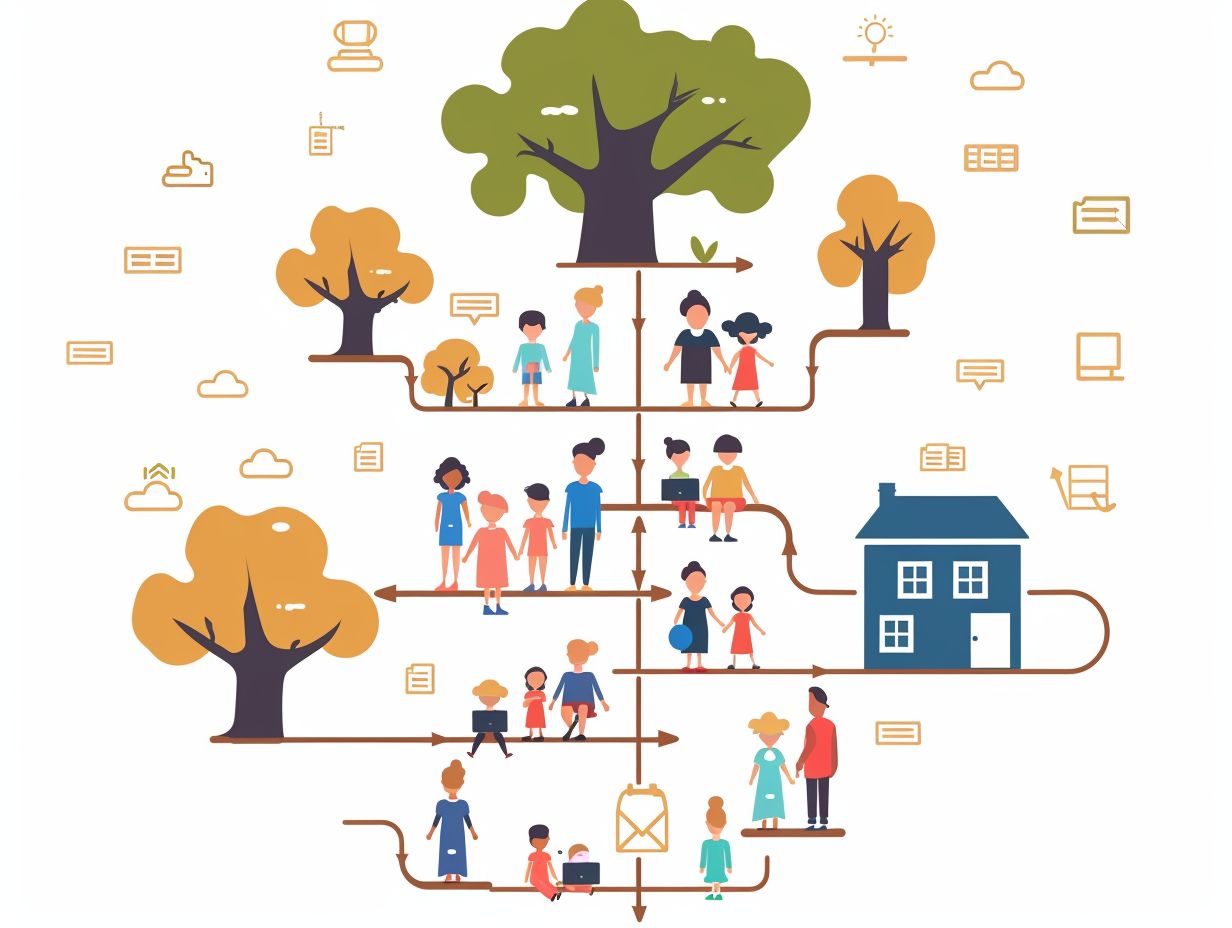 1. Understanding the adoption process in Florida involves choosing an agency, completing a home study, attending training, finding a match, and finalizing the adoption.
1. Understanding the adoption process in Florida involves choosing an agency, completing a home study, attending training, finding a match, and finalizing the adoption.
2. Requirements for adoption in Florida include age, residency, background checks, financial stability, and good health.
3. Types of adoption in Florida include domestic, international, foster care, and relative adoption.
What is Adoption?
Adoption is a legal process through which an adult or couple legally becomes the parent(s) of a child who is not biologically related to them, establishing a permanent and caring adoptive family for the child.
There are various types of adoption, such as domestic adoption, international adoption, foster care adoption, and private adoption. Each type has its own procedures and considerations, but they all aim to provide a stable and nurturing environment for the child.
The emotional aspects of adoption are significant, affecting both the child being adopted and the adoptive family. From the excitement and happiness of welcoming a new family member to the challenges and adjustments of forming new connections and identities, the emotional journey of adoption involves a wide range of feelings.
The adoption process itself can be lengthy and intricate, involving legal formalities, home studies, background checks, and waiting periods. However, the end result of creating a permanent family through adoption is considered worthwhile.
What is the Adoption Process in Florida?
The adoption process in Florida comprises several crucial steps that prospective adoptive parents must adhere to for a seamless and lawful adoption. This process is frequently facilitated by an adoption attorney who assists in navigating Florida adoption law.
1. Choosing an Adoption Agency
Choosing the right adoption agency is an important initial step for prospective adoptive parents in Florida, setting the groundwork for a successful adoption journey. Accreditation is a crucial factor to consider when choosing an adoption agency, as it ensures that the agency adheres to industry standards and practices.
The services provided by the agency should match the needs and preferences of adoptive parents, including pre-adoption counseling, matching services, and post-adoption support.
A reputable agency should also prioritize the well-being and assistance of birth parents throughout the adoption process, offering counseling, medical care, and information on their rights and choices. By assessing these criteria, adoptive parents can make an informed decision that aligns with their individual circumstances.
2. Completing a Home Study
Conducting a home study is a vital component of the adoption process in Florida, where professionals evaluate the appropriateness of the potential adoptive family.
During the home study procedure, professionals engage in detailed interviews with the prospective adoptive parents to comprehend their motivations, family dynamics, and capacity to offer a caring and stable environment for a child.
Home visits also play a crucial role, enabling professionals to observe the living conditions and confirm they meet safety requirements. Background checks are conducted to verify the applicants’ criminal history, employment status, and general suitability to become adoptive parents. These thorough measures are essential in ensuring that the child being adopted will be placed in a safe and nurturing family setting.
3. Attending Adoption Training
Adoption training is created to prepare the adoptive family for the specific challenges and rewards they may encounter during the adoption process. This training covers a broad spectrum of topics essential for successfully navigating through the adoption journey.
These topics include understanding the emotional needs of adopted children, developing strong attachment bonds, managing dynamics of transracial or transcultural adoption, and addressing potential identity issues that may surface.
By providing families with this knowledge and insight, the training plays a crucial role in ensuring that adoptive parents are equipped to confidently and effectively meet the needs of their adopted child. The preparation gained through adoption training helps families establish a solid foundation for communication, resilience, and support, which are crucial components in creating a stable and nurturing environment for the child.
4. Finding a Match
The process of finding a match involves reviewing adoption opportunities and connecting with a birth mother who is looking for the right adoptive family for her child.
Adoption specialists play a crucial role in this process by working closely with both birth mothers and prospective adoptive families to facilitate a successful match. They assess the preferences, needs, and expectations of both parties to ensure compatibility and a healthy relationship moving forward.
Pre-placement contact is key in establishing trust and communication early on, allowing all involved parties to openly discuss their hopes and concerns. Through careful consideration and ongoing support, a suitable adoption situation is identified, prioritizing the well-being and best interests of the child at the center of the process.
5. Finalizing the Adoption
Finalizing the adoption is the last legal process in the adoption journey, culminating in the issuance of an adoption decree by the court. The finalization typically involves a court hearing where the adoptive parents, the child, and any necessary parties appear before a judge.
During this hearing, the judge reviews the adoption petition and ensures all legal requirements have been met. Adoption attorneys play a crucial role in representing the adoptive parents throughout this process, ensuring their rights and the best interests of the child are protected.
Once the court grants the adoption decree, it legally solidifies the parent-child relationship, providing the adoptive parents with all the rights and responsibilities as if the child were biologically theirs.
What are the Requirements for Adopting in Florida?
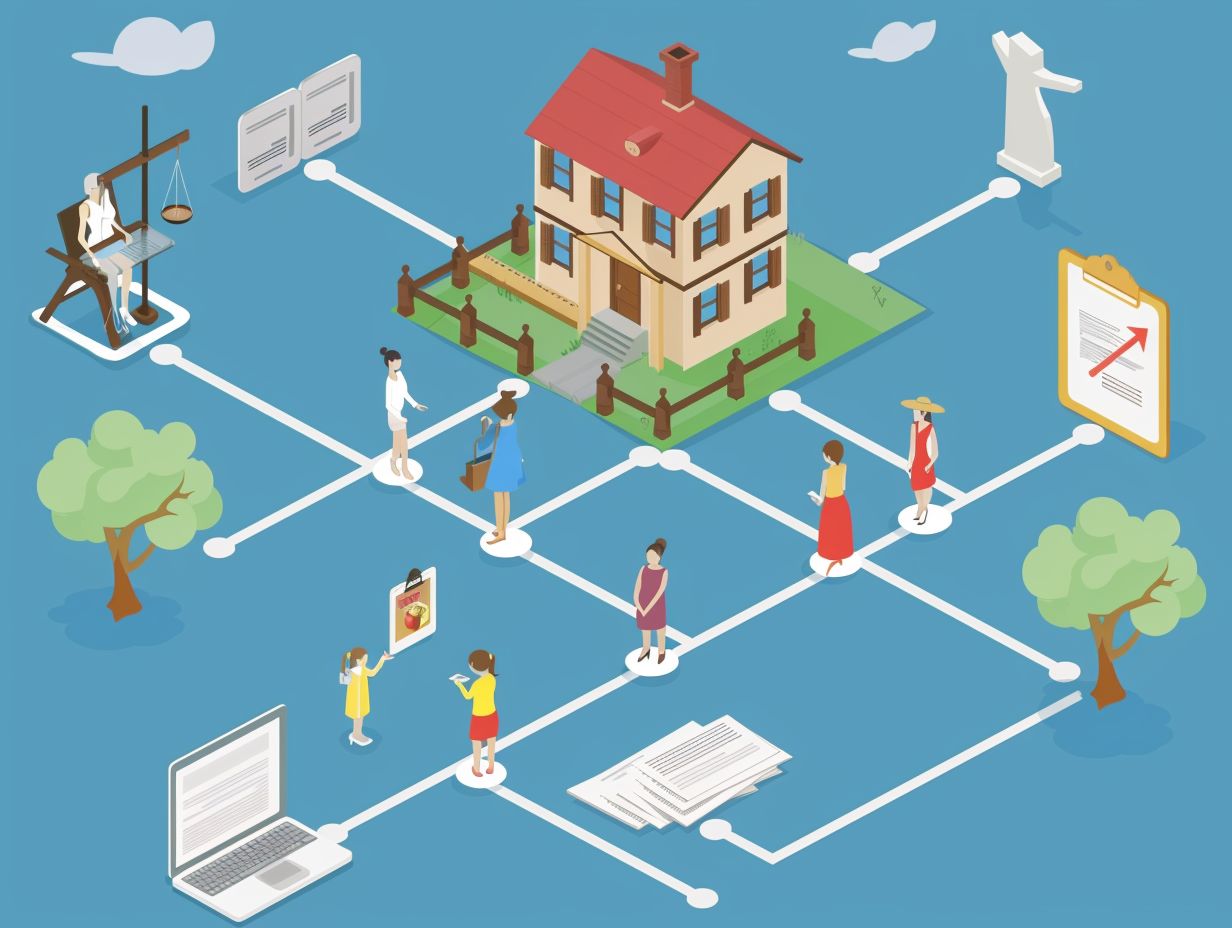
It is important for prospective adoptive parents to understand the requirements for adopting in Florida. This helps ensure compliance with Florida adoption law and can increase their chances of a successful adoption.
1. Age Requirements
Prospective adoptive parents in Florida must adhere to age requirements mandated by Florida adoption law, which typically stipulate a minimum age of 18 years.
The age stipulations established by the state are essential to ensure that potential parents possess the necessary maturity and stability to provide for a child.
Exceptions to the minimum age requirement exist in specific circumstances. For instance, if one spouse exceeds the age of 18 while the other is younger, they may still be considered as prospective adoptive parents. These exceptions are evaluated on an individual basis, with the main objective being the welfare and appropriateness for the child in question.
2. Residency Requirements
Residency requirements for adoption in Florida are overseen by the Florida Department of Children and Families to ensure that prospective adoptive parents reside in the state for a specified period.
This period usually varies from 6 months to 1 year, depending on the specific adoption agency or program. These regulations are in place to establish that potential adoptive parents have a stable connection to the state, indicating their dedication to raising a child within Florida’s communities.
The state sets residency requirements with the goal of protecting the child’s welfare and confirming that adoptive parents are genuinely committed to offering a loving and permanent home environment. These regulations also serve to prevent issues associated with out-of-state adoptions and guarantee that families receiving adoption services in Florida are properly supported and integrated into the local community.
3. Background Checks
Background checks play a crucial role in the legal process to safeguard the safety and well-being of the child within the adoptive family.
These checks typically entail thorough investigations into various aspects of an individual’s background. Criminal background checks are vital for uncovering any past convictions or legal matters that could jeopardize the child’s safety. Equally important are child abuse clearances, which aim to confirm that the individual has not been implicated in any form of abuse or neglect.
These checks are usually carried out by government agencies or authorized entities to ensure the accuracy and reliability of the gathered information. By examining these details closely, authorities can make well-informed decisions regarding the appropriateness of potential adoptive parents.
4. Financial Requirements
Ensuring financial stability is a crucial aspect of creating a secure environment for the child, which is evaluated during the adoption opportunity and adoption situation assessments.
Prospective adoptive parents are typically asked to provide comprehensive income verification to demonstrate their financial capacity. This may include submitting tax returns, pay stubs, and other financial documents for assessment. Financial stability is important to ensure that the adoptive parents can meet the child’s needs without facing significant financial difficulties.
Evaluators consider factors such as job stability, debt-to-income ratio, and overall financial well-being to determine if the prospective parents meet the required financial standards. These evaluations are conducted to guarantee that the child will be placed in a stable and caring home environment.
5. Health Requirements
Health requirements are evaluated during the home study by adoption professionals to verify that prospective adoptive parents meet the necessary physical and mental capabilities for caring for a child.
Physical examinations are completed to assess the overall health status, which includes monitoring vital signs, conducting blood tests, and reviewing medical history. Mental health assessments concentrate on evaluating the emotional well-being, coping abilities, and capacity to provide a stable environment for the child for prospective parents.
Fulfilling these requirements is vital as it aids in confirming that the child will be positioned in a safe and nurturing home, supporting their overall well-being and development.
What are the Different Types of Adoption in Florida?
Florida provides a range of adoption options to accommodate different family needs, such as private adoption, international adoption, foster care adoption, and relative adoption.
1. Domestic Adoption
The process of domestic adoption in Florida typically involves engaging with an adoption agency to adopt a child from within the United States, often with the participation of birth parents in the adoption plan.
The process usually commences with prospective parents submitting an application to an adoption agency. The agency then carries out home studies to evaluate the suitability of the potential adoptive parents, ensuring a secure environment for the child.
Birth parents may select from an open, semi-open, or closed adoption, each offering different levels of communication and contact post-adoption. The adoption agency plays a critical role in facilitating these arrangements and providing support and guidance to both the birth parents and the adoptive parents throughout the process.
2. International Adoption
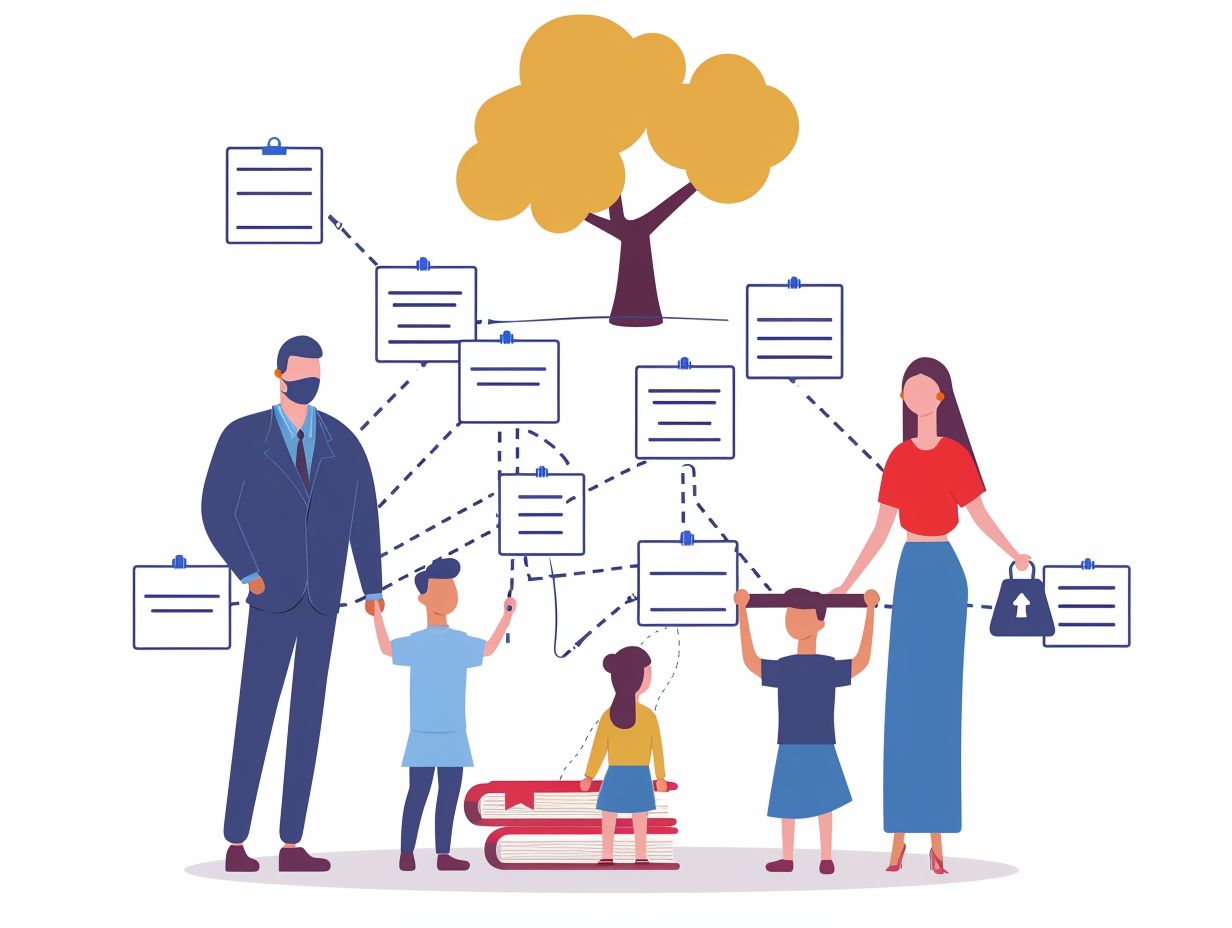
International adoption typically involves the adoption of a child from a foreign country while following regulations established by the Hague Convention and ensuring that the child acquires U.S. Citizenship.
The process of international adoption can be a mix of emotional fulfillment and legal complexity. The Hague Convention, an international treaty aimed at protecting intercountry adoptions, plays a vital role in ensuring the ethical and transparent nature of the adoption process.
Adoptive parents are required to adhere to specific procedures to fulfill the criteria outlined in the Convention, which may include completing a home study, submitting necessary documentation, and undergoing background checks. Once the adoption is finalized, the process of securing U.S. Citizenship for the child involves completing the required paperwork and meeting specific eligibility requirements to establish a stable legal status for the child in their new home country.
3. Foster Care Adoption
Foster care adoption offers adoption opportunities for children in the foster care system, including post-placement visits to monitor the child’s well-being.
During the foster care adoption process, prospective adoptive parents undergo comprehensive screenings, background checks, and training to prepare them for the responsibility of caring for a child who may have faced trauma. Post-placement visits are carried out by social workers to evaluate the child’s adjustment to their new environment and ensure that both the child and the adoptive family are receiving necessary support.
Adopting through the foster care system not only provides a caring home for a child in need but also includes resources like financial assistance, healthcare coverage, and counseling services to support the child’s well-being in their new family.
4. Relative Adoption
Relative adoption, also referred to as kinship adoption, is the process of adopting a child who is a relative, with a legal procedure that gives custody to the adoptive family.
This type of adoption has several benefits, including maintaining the child’s ties to their biological family, which can contribute to the child’s emotional stability. By keeping the child within the family, kinship adoption helps preserve cultural, religious, and familial connections that are important for the child’s sense of identity.
The legal process for relative adoption typically includes evaluations of the home, background checks, and court approval to ensure the child’s safety and welfare. Custody arrangements in kinship adoption can vary, with some cases involving ongoing support from child welfare agencies to facilitate a smooth transition for the child.
What is the Cost of Adoption in Florida?
The cost of adoption in Florida can vary widely based on factors like the type of adoption, whether an adoption attorney or agency is utilized, and if it’s a private adoption.
Legal fees are a significant aspect of adoption costs, with attorneys commonly charging hourly rates or flat fees for their services.
Agency fees can cover application fees, home study fees, and placement fees.
Along with these costs, additional expenses such as court costs, birth parent medical expenses, and travel expenses can accumulate quickly.
Prospective adoptive parents should budget and plan for these expenses carefully to facilitate a smooth adoption process.
What Resources are Available for Adoptive Families in Florida?
Families who have adopted in Florida can utilize various resources available to assist them before, during, and after the adoption process. These resources include financial aid and services for post-adoption support.
1. Financial Assistance
Financial assistance programs are available to help adoptive families manage the costs associated with adoption opportunities, making the adoption process more accessible. These financial assistance programs come in various forms, such as grants, loans, tax credits, and employer benefits.
To qualify for these programs, adoptive families often need to meet certain criteria, including income limits, completion of adoption education courses, and sometimes specific requirements based on the type of adoption pursued.
By providing financial support, these programs help cover expenses like adoption agency fees, legal costs, home study fees, and even travel expenses related to the adoption process, significantly reducing the financial burden on families seeking to expand through adoption.
2. Support Groups
Support groups are an important source of emotional support for adoptive families, providing a space for sharing experiences and receiving guidance from others who are on a similar journey.
These support groups play a critical role in aiding individuals as they navigate the complexities of the adoption process, creating a sense of community and understanding that can be very comforting.
By connecting with other adoptive families, individuals can acquire valuable insights, resources, and coping strategies. Support groups also provide a platform for discussing common challenges, celebrating milestones, and forming lasting friendships based on shared experiences.
Finding these groups can be accomplished through adoption agencies, online forums, community centers, or by seeking recommendations from other adoptive families or professionals in the field.
3. Post-Adoption Services
Post-adoption services provide ongoing support to adoptive families, with adoption specialists offering assistance in addressing any challenges that may arise after the adoption process is completed. These services include a variety of resources customized to meet the specific needs of each family.
Counseling services offer emotional support and guidance to both the adoptive parents and the adopted child, aiding them in navigating the complexities associated with adoption. Educational resources are also accessible to help families comprehend and address any behavioral or developmental concerns that may emerge post-adoption.
Adoption specialists are equipped to provide practical aid, such as connecting families with local support services or facilitating communication with birth families, if desired.
What are the Rights of Birth Parents in Florida Adoption?

In Florida, birth parents are granted specific rights protected by law, which include the right to establish a hospital plan and make decisions regarding post-adoption contact with their child. These legal rights are designed to enable birth parents in the adoption process, ensuring that their preferences are honored and their voices are taken into consideration.
The hospital plan plays a significant role in outlining how the birth parent wishes for the initial days following the child’s birth to proceed, addressing aspects such as who may be present during the birth, whether contact will occur between the birth parent and the child, and other important factors.
Post-adoption contact options offer avenues for birth parents to maintain connections with the child and adoptive family if they opt to do so, enabling ongoing relationships and support.
What is the Role of an Adoption Attorney in Florida?
An adoption attorney fulfills a vital role in guiding prospective adoptive parents through the legal procedures of adoption in Florida. Their responsibilities include providing legal representation during court proceedings, preparing and submitting essential adoption documents, and offering advice and assistance throughout the adoption process.
These attorneys aid in ensuring compliance with all legal regulations, such as background checks, home studies, and court appearances. They collaborate closely with social workers, adoption agencies, and other relevant parties to facilitate a seamless and successful adoption process.
Adoption attorneys are involved in drafting and reviewing adoption agreements, negotiating terms with birth parents, and completing the necessary legal steps to formalize the adoption.
Frequently Asked Questions
What is the first step in understanding Florida’s adoption process?
The first step is to research and educate yourself on the different types of adoption in Florida, such as domestic, foster care, and international adoption.
What are the requirements to adopt a child in Florida?
To adopt a child in Florida, you must be at least 18 years old, financially stable, and pass a background check and home study. Married couples and single individuals are both eligible to adopt.
What is a home study and why is it necessary?
A home study is a comprehensive assessment of the prospective adoptive parents’ background, lifestyle, and home environment to ensure they are fit to provide a safe and nurturing environment for a child. It is required for all types of adoption in Florida.
How long does the adoption process take in Florida?
The length of the adoption process varies depending on the type of adoption and individual circumstances. Domestic adoptions typically take 6-12 months, while foster care adoptions can take 12-18 months or longer.
Can same-sex couples adopt in Florida?
Yes, same-sex couples are legally allowed to adopt in Florida. The state does not discriminate based on sexual orientation or gender identity in the adoption process.
What resources are available for those interested in Florida’s adoption process?
There are many resources available to those interested in adopting in Florida, including adoption agencies, support groups, and online guides. The Florida Department of Children and Families also provides information on the adoption process and available children for adoption in the state.

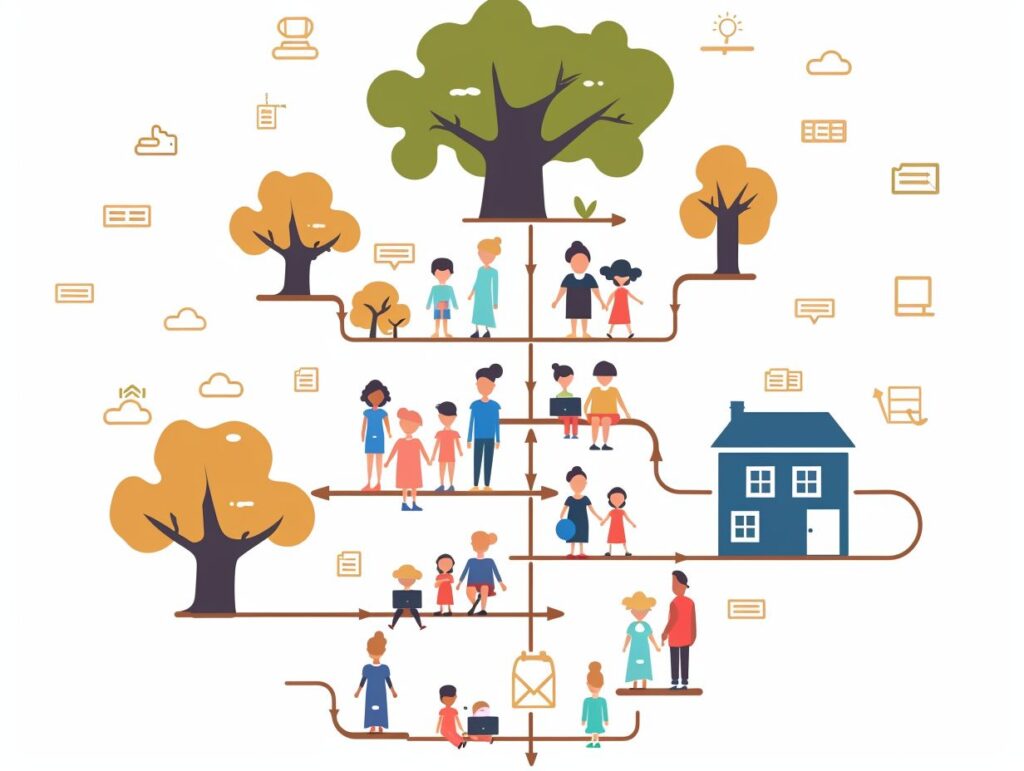












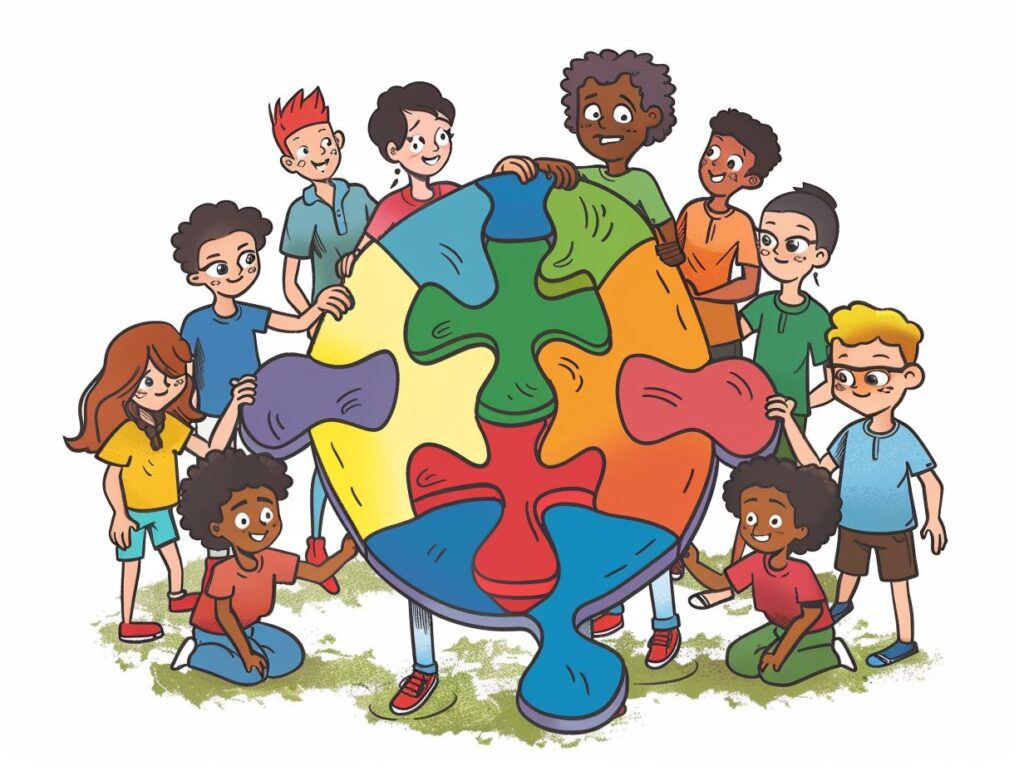








Rate this article:
Average rating 0 / 5. Vote count: 0
No votes so far! Be the first to rate this post.
No Comments yet!